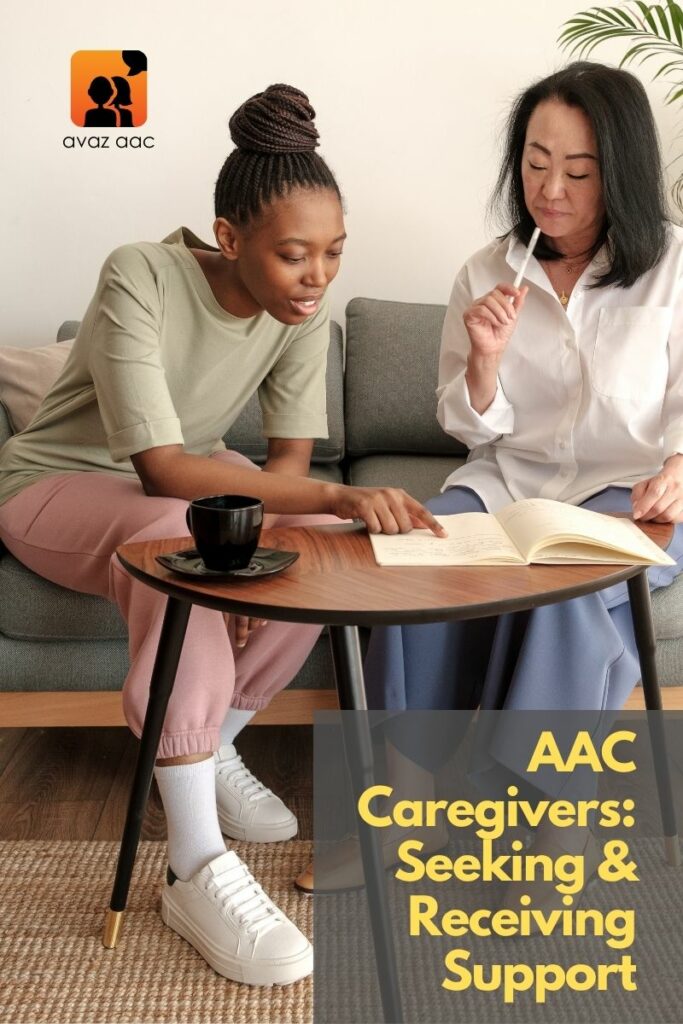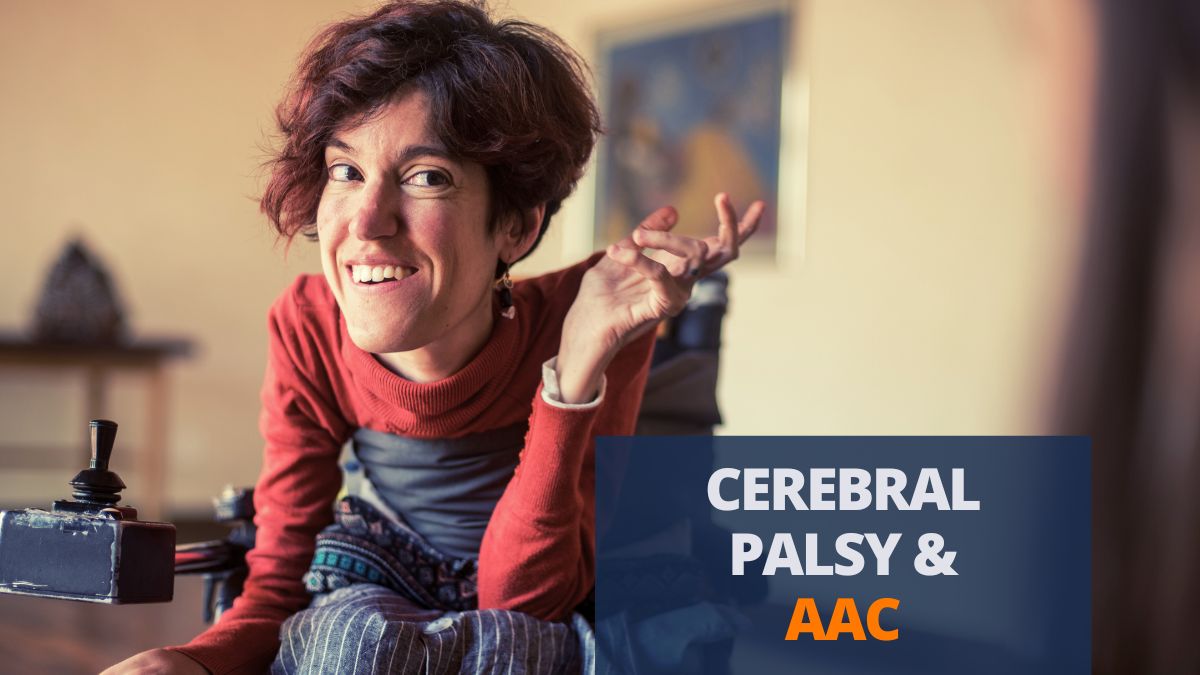It is crucial that AAC caregivers receive the right kind of support while they support the AAC users in their life. What are some ways in which caregivers can seek and receive support? In this blog, Avaz’s resident SLP Nayantara has put together some pointers from her experience.


Supporting AAC Caregivers
Therapy for implementation of AAC usually caters to the needs of the child or the adult AAC user. While we address these needs, it is important to also consider the needs of their caregivers. This is the person/group of people who will support AAC implementation at home. So, a critical part of therapy would be to get the caregivers onboard through education and training. It is important that they feel supported throughout the AAC journey.
So this article is specifically for AAC caregivers who are looking for advice from a speech therapist’s perspective. The advice given below is not directly related to the AAC implementation strategies. That said, it gives you some points to remember as you learn and delve into the world of AAC.
Ask Questions
No question is wrong. Make sure to keep asking questions throughout the AAC journey. You have the right to question the process if you have a doubt about it. If you are not part of the goal setting process, you have to ASK to be in it. You have to ASK for more help from the Speech Therapist to attempt modelling activities at home. The more you ASK, the more you can learn. This will also help you be an involved and engaged participant in your child’s AAC intervention.
For example, a parent had asked me whether they should move the child’s favourite snack item- CHIPS to the home screen of the app or if it should stay in the ‘snack’ folder which is within the ‘eat’ folder. The parent asking this question gave me the chance to explain to them the need to teach navigation to different folders.
You Are the Expert
Even though the Speech Therapist is professionally trained to work with your child, you know your child best. You know your child’s preferences. You can guess how they might react in situations. Finally, you know the goals that you would like to work on to make those everyday communication interactions better.
For example, the parent of the AAC user was the only person who could tell me about the negative experience that the user had in various therapies as a child. This helped me attribute those experiences to his performance anxiety seen currently in our therapy. She was the expert on her child’s background and her narrative helped change my approach to therapy keeping in mind the considerations for mental health.
Advocate for Training
All of us are different learners – some learn visually and some others auditorily. Advocate for yourself to your Speech Therapist. Communicate to them how you would like the training information to be conveyed. Some of the caregivers I work with require a step-by-step approach where each activity is explained in detail. Some others just need a demonstration and they are good to go.
Whichever type of support you require, please do ask and get it for yourself. Do it so that you can support your AAC user in the best way. You can also request for different mediums of training depending on your comfort. For instance, if you like to watch videos or read blog articles, communicate your requirements.
For example, a parent asked me to give her step-by-step instructions of how to model at home. She required instructions right down to the specific sentence she needs to say and what she needs to say in response to her son’s response. Because she advocated for this detailed level of training, I was able to provide this to her right at the start of our association. This made her feel supported and made it easier for her to complete the home practice consistently.
Join a Support Group
You are not alone in this journey and it always helps to share it with someone who might be going through the same. Look for online groups on social media apps like Facebook. You can also ask to be added to groups on messaging apps like WhatsApp, Telegram etc.. In addition to these, most AAC device / app companies have support groups for this very purpose.
In all these groups, you can share AAC wins as well as struggles. You can also turn to these groups to find ideas to solve daily problems. You will find that you are not alone. That many issues you face are common to the community.
Join Avaz caregiver support groups in India: Facebook and Telegram
Join Avaz caregiver support groups globally: Facebook
Celebrate Wins
It is important to take time to celebrate and appreciate the little wins in the AAC journey. Learning to use an AAC system is not an easy task, it requires team effort. The team includes the user themselves, the caregivers, the Speech Therapist and any other professionals. So when the AAC user has finally started to look at the device during a communication interaction or has started to type the first letter of their name, it is party time!
Share the Load
If you are the parent that attends therapy and is carrying out the home practice of the AAC implementation strategies, then you have a big responsibility on your shoulders. If this responsibility always lies only with one person then it takes a toll on the person’s physical and mental health. To prevent this from happening, get the rest of the family onboard, or ask a friend to help out. But certainly find out different ways in which others can also support the AAC implementation. Having different communication partners will support socialization skills and generalization of the concepts taught in therapy.
Attitudes for AAC Caregiver Success
Certain personality traits are common among parents who are successful in AAC therapy. Such parents are patient, persistent and open to learning. The AAC journey is a long and hard one. Having patience and trusting in the process is very important. Being persistent with therapy even if the gains are slow is crucial. Some other qualities that prime you for success in therapy are:
- Being open to learning.
- Trying new activities.
- Working on constructive feedback.
Conclusion
In summary, AAC implementation is not a one person job. As a caregiver, you need support and training according to your needs. Your Speech Therapist should help you with this support. Only then can we come together and support our AAC user to be an independent and effective communicator.
WRITTEN BY
Nayantara Nambiar, MSP, BASLP
Speech Language Pathologist
Trained in India and Australia, I am passionate about supporting people with communication and swallowing difficulties. Equipped with experience in Rehabilitation, School and Early Intervention settings, I strive to provide a holistic intervention approach tailor-made for my clients and their families.


Besides Avaz AAC, we provide a whole host of exciting products & services. Use the buttons below to explore Avaz!



